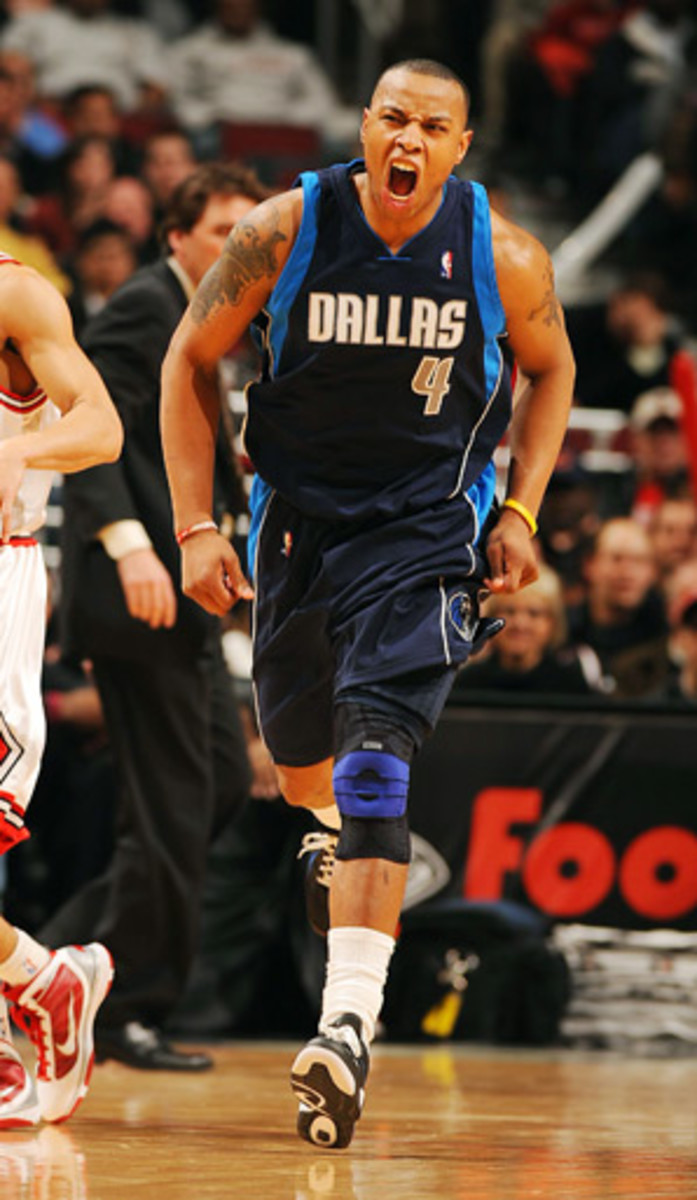Newest Mavs fill in missing pieces
But we have seen this from the Mavs before. Regular-season success in Dallas is nothing new. In 2006-07, the Mavs won an NBA-best 67 games, only to be wiped out in the first round by the eighth-seeded Warriors. They won 51 games the next season, but were once again blitzed out of the opening round, this time by New Orleans, which won in five games. Last season they managed to advance, but were then dumped by Denver in five games in the Western Conference semifinals.
So why should this season be any different?
It's simple: The massive pre-deadline trade didn't just make them a better team; it made them a tougher team, too. And toughness, in case you haven't been watching, is a necessary ingredient to any championship mix.
That's not to say the Mavs' teams of recent history were totally devoid of toughness. Erick Dampier has had no problem displaying his toughness, and there aren't many players who would want to be alone in an alley with an angry JerryStackhouse. But Stackhouse was on the back end of his career with Dallas, and Dampier was a walking foul whose hacking habits often kept him nailed to the bench for prolonged stretches.
But Dallas' newcomers have added a different dynamic. Take Butler, for example. At 6-foot-7 and 228 pounds, Butler doesn't have overwhelming size for a swingman. But with 6.3 rebounds per game, he ranks behind only Gerald Wallace, Kevin Durant, Luol Deng, LeBron James and new teammate Shawn Marion at small forward (his old position with Washington) and leads shooting guards (his new position). Butler's size and physicality give him an advantage over most guards offensively and, thus far, he has held his own defensively.
Stevenson, while not much of an offensive threat, shares several of the same qualities. The Mavs' crowded rotation hasn't left many minutes for the rough-and-tumble swingman, but ask Rick Carlisle for a potential sleeper in the playoffs and he points to Stevenson -- whose defense on LeBron James the last two seasons has earned him respect -- every time.
It's Haywood, though, who could eventually make the biggest difference. Stability has not often been associated with the Mavs' center position. Dampier has been a model of inconsistency, and for years the Mavs went with Gooden/Brandon Bass-types as backups. So desperate were the Mavs for a pivot last offseason that they threw a bundle of cash at restricted free agent Marcin Gortat, only to lose out when Orlando stunned everyone by matching the offer for the reserve center.
Haywood, however, is an even better alternative. He has been consistent, rarely having an off night. Haywood has played 24-plus minutes in 10 of 12 games with Dallas. His worst full game was a seven-point, six-rebound, one-block effort against Charlotte. His best was a 13-point, 20-rebound game against Indiana.
Defensively, Haywood has been a giant. He is tied for third in the league with 2.1 blocks, and his presence in the middle has been noticeable. With Haywood backstopping the defense against New Jersey on Wednesday, the Nets went 3-for-21 from the field at the start of the second half and were outscored 31-15 in the game-breaking quarter. The 1-2 punch of Haywood and Dampier in the middle ensures that Dallas will always have a 7-footer as its last line of defense.
"That's definitely a big plus for us," Marionsaid. "We have the depth and the size to match up with everyone very well."
By "everyone," of course, Marion is implicitly referring to the Lakers. Every West contender views the defending champions as the the inevitable obstacle on its path to the Finals. With Dirk Nowitzki and Jason Kidd, Dallas already had enough skill players to match L.A. Now, with Butler, Haywood and Stevenson in the fold, the Mavs just might be able to match its toughness, too.





